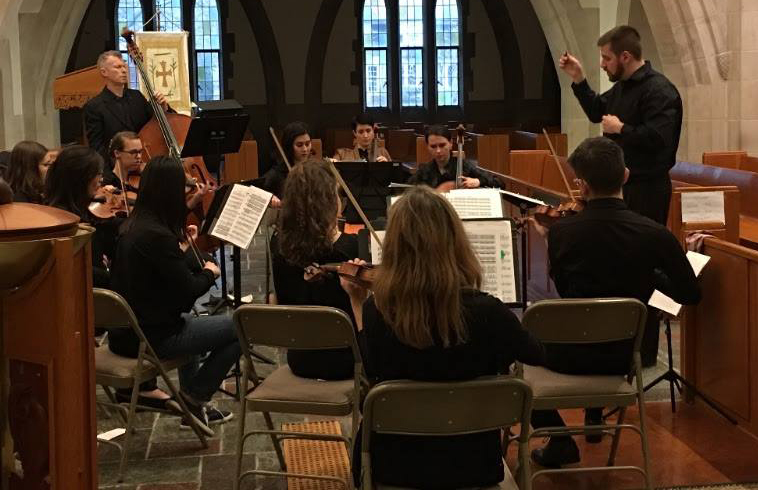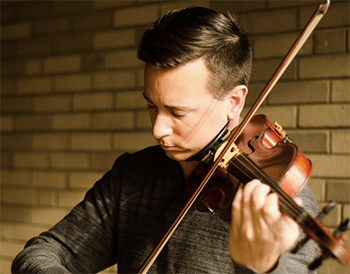by David Kulma

Teenage Mendelssohn is a fascinating composer study. His first fully mature composition — the justly famous Octet for strings — was written at 16. A few years before that, he was clearly still a student, but his juvenilia is so technically assured and enjoyable to listen to, it’s no wonder that Earth and Air is taking a worthwhile tour of his youthful symphonies.
Seated in the church’s crossing, Ellis and his 11-piece orchestra began the evening with the first movement of Mendelssohn’s String Symphony No. 8 in D. The dark, brooding d-minor opening unfurled into a brisk, yet relaxed Mozartian splendor. The most attractive aspect of this performance was the judicious use of vibrato in certain moments: intense, hushed passages went without, while high-spirited moments had plenty.
The concert then pivoted to the composer’s early d-minor concerto for violin and strings featuring Andrew Sords. This concerto begins with a little devilish flair in a not-quite Classical style. There are hints of Vivaldi in some of the orchestra’s refrains, but the musical phrasing and sectionalized form feels more like a latter-day Mozart viewed through a tiny, Romantic lens. Sords was technically brilliant, playing with plenty of panache, while Ellis’s phrasing was spot-on. The slow movement swung to major, except for minor excursions perfectly executed by Sords, especially the mournful cadenza. The continuously spinning finale beautifully showed off the soloist, and ended this effective concerto with conviction.

Up next was a return to the symphony for its slow movement, scored without violins. Ellis stepped away from the podium and reduced the ensemble to five players. Violists Anna Sutterisch, Maia Hoffman, and Erlene Koh, cellist Aaron Fried, and bassist Sue Yelanjian gave this Bach-inspired music a pleasingly intimate reading. Then, Sords joined those players for a lovely — and loving — performance of Fritz Kreisler’s arrangement of Mendelssohn’s 25th Song Without Words, orchestrated by Ellis. It was clear from the first moment that this was mature Mendelssohn.
The concert concluded with Ellis conducting the full ensemble in the final two movements of the symphony. The minuet was a polished, Classical-style jewel with Beethovenian accents in the trio. The playful finale featuring some fugal ideas brought this enjoyable evening to a close.
Published on ClevelandClassical.com November 6, 2018.
Click here for a printable copy of this article




